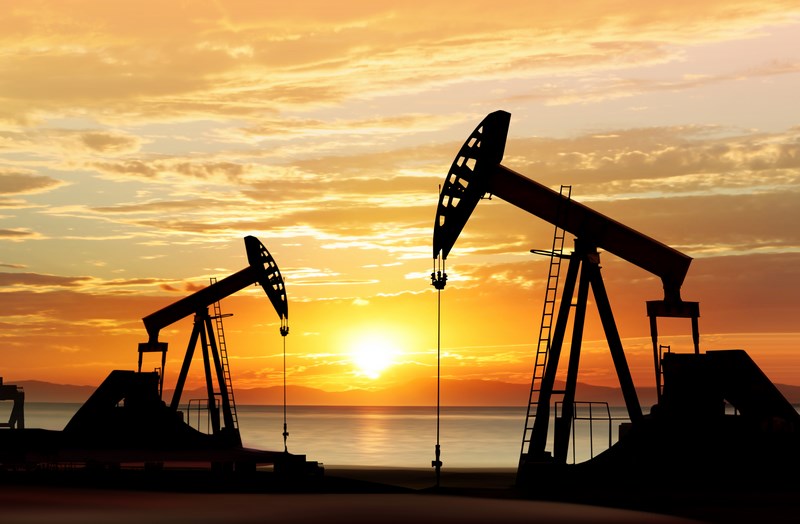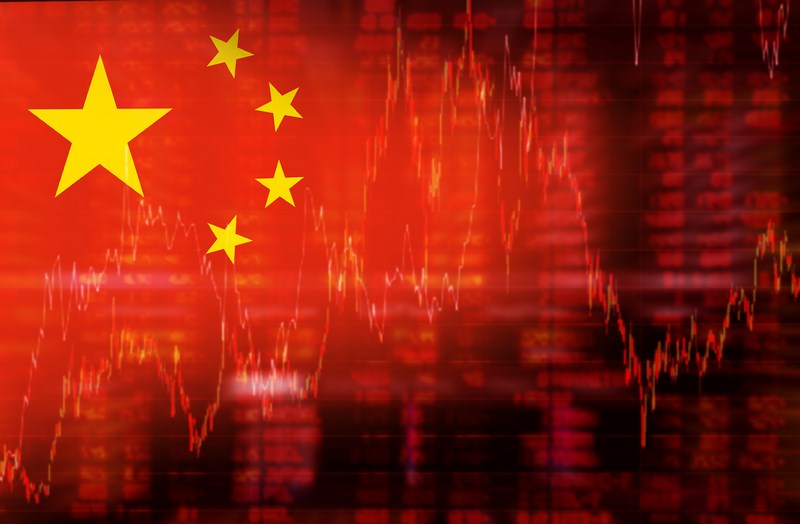 Crude oil is a liquid mineral extracted from the earth formed by the transformation of plant and animal debris accumulated with fine mineral scum in marine sediments. Oil is the most important raw material in the world, from which gas, gasoline or diesel is obtained.
Crude oil is a liquid mineral extracted from the earth formed by the transformation of plant and animal debris accumulated with fine mineral scum in marine sediments. Oil is the most important raw material in the world, from which gas, gasoline or diesel is obtained.
The price of oil for a barrel – quotes, oil price
Crude oil is listed on many stock exchanges in the world. Most often its price is given in US dollars per barrel. The barrel of oil (1 bbl) is 42 US gallons, or about 159 liters. Major stock markets where oil is listed are: NYMEX and LIFFE.
Oil quotes
The CME Group now has many stock exchanges, the Chicago Mercantile Exchange (CME), the Chicago Board of Trade (CBOT), the Kansas City Board of Trade (KCBOT) and the New York Mercantile Exchange (NYMEX). Oil is quoted at NYMEX in New York.
The ICE (Intercontinental Exchange) is an American financial company established in 2000. The company is headquartered in Atlanta, Georgia. It operates 23 regulated exchanges including futures exchanges in the United States, Canada and Europe. Oil futures are listed on London International Financial Futures and Options Exchange (LIFE).
Oil production
Although oil is being extracted on almost every continent, only two play a key role in world markets. It is WTI (West Texas Intermediate) and Brent. The first one is extracted in the Gulf of Mexico in the United States. It is also called Texas Light Sweet because of its relatively low density and low sulfur content. The second most famous oil in the world is the North Sea. European oil contains slightly more sulfur than WTI, so its processing costs are slightly higher. Theoretically, it should be cheaper and practically different. Undoubtedly, the mentioned oil constitutes a specific benchmark for the price of this raw material in the world.
However, it would be very easy to say that the prices of energy resources depend on only two types of crude oli. Certainly, Russia’s oil comes from different deposits, mainly from Western Siberia and the Urals. REBCO (Russian Export Blend Crude Oil), sometimes referred to as Urals, is a heavy oil requiring adequate refining by the refinery. It is hard to miss the Middle East on issues related to the so-called black gold. This region is dominated by oil extracted by Saudi Arabia and other countries from the OPEC cartel.
It is also worth adding, the development of technology has made it possible to combine horizontal drilling with hydraulic fracturing, which started in 2005 the so-called shale revolution. The United States has become more self-sufficient, and output in 2007 – 2014 increased by 50% year on year. Currently the US is at the forefront of oil-producing countries.
Oil because of the density can be divided into:
- light (less than 0.878 gram / centimeter³)
- average (0.878 to 0.884)
- heavy (over 0.884)
Where is oil extracted (bbl/day – 2016)
- Russia – 10 551 497
- Saudi Arabia (OPEC) – 10 460 710
- United States – 8 875 817
- Iraq (OPEC) – 4 451 516
- Iran (OPEC) – 3 990 956
- China – 3 980 650
- Canada – 3 662 694
- United Arab Emirates (OPEC) – 3 106 077
- Kuwait (OPEC) – 2 923 825
- Brazil – 2 515 459
The largest companies involved in oil production
Saudi Aramco – the official name of the company is Saudi Arabian Oil Company. It is a state-owned petrochemical company based in Dhahran. Company value is estimated at between $ 1.25 trillion and $ 10 trillion, making it the most valuable company in the world. The company is not listed on the stock exchange.
 PetroChina is a Chinese oil and gas company listed on the stock exchange of a state-owned subsidiary of China National Petroleum Corporation (CNPC), based in Beijing. It is the largest oil producer in China. It is listed on the Stock Exchange of Hong Kong Limited (SEHK), the Shanghai Stock Exchange (SSE) and the New York Stock Exchange (NYSE). It is part of the SSE 50 index.
PetroChina is a Chinese oil and gas company listed on the stock exchange of a state-owned subsidiary of China National Petroleum Corporation (CNPC), based in Beijing. It is the largest oil producer in China. It is listed on the Stock Exchange of Hong Kong Limited (SEHK), the Shanghai Stock Exchange (SSE) and the New York Stock Exchange (NYSE). It is part of the SSE 50 index.
Exxon_Mobil – as a result of merging two companies, Exxon and Mobil. ExxonMobil was created at the end of 1999. The founder of the company is John Davison Rockefeller, who in 1870 founded Standard Oil, a parent company of ExxonMobil. The company is one of the largest firm in terms of capitalization listed on the NYSE. He is looking for new deposits of energy resources, extraction, processing and sale of petroleum products.
Chevron Corporation – the origins of the company go back to the nineteenth century when oil fields in California were discovered, which contributed to the founding of Pacific Coast Oil Company in 1879, which is believed to be Chevron’s mother. In 1900, Pacific Oil was purchased for $ 761,000 by Standard Oil, owned by John D. Rockefeller. The company is the second largest US energy company in the US alongside ExxonMobil and is among the six largest companies in the world. It deals with practically everything related to energy resources, including the extraction, production, refining, production and sale of chemicals. The company is listed on the NYSE.
Royal Dutch Shell – commonly known as Shell, a British-Dutch international oil and gas company based in the Netherlands and in the United Kingdom. It is one of the six largest oil and gas producers in the world. The company is listed on the London Stock Exchange (LSE), Euronext and NYSE.
BP (British Petroleum) is a British oil and gas company based in London. It is one of the seven largest oil and gas corporations in the world. The company is listed on the LSE, the Frankfurt Stock Exchange (Frankfurter Wertpapierbörse, FWB) and the NYSE.
 Lukoil – it is one of the largest Russian oil companies. It is also one of the world’s largest oil producers. In 2012, the company produced 89.856 million tonnes of crude oil (1.813 million barrels) a day. The headquarters are located in Moscow. Lukoil is one of the largest public companies (alongside ExxonMobil) in terms of oil and gas reserves. It is listed on the Moscow Exchange (MCX), LSE, FWB and on the OTC Markets Group.
Lukoil – it is one of the largest Russian oil companies. It is also one of the world’s largest oil producers. In 2012, the company produced 89.856 million tonnes of crude oil (1.813 million barrels) a day. The headquarters are located in Moscow. Lukoil is one of the largest public companies (alongside ExxonMobil) in terms of oil and gas reserves. It is listed on the Moscow Exchange (MCX), LSE, FWB and on the OTC Markets Group.
Use of oil
Oil is the primary raw material of the petrochemical industry used to receive petrol, kerosene, paraffin, asphalt, mazut many synthetic materials.
Crude oil is processed by the refining industry, which is refined into refineries. In order to extract from the oil its individual components (e.g. gasoline), fractional distillation is used.
Oil and politics
 Let us pause for a moment at the Organization of the Petroleum Exporting Countries (OPEC). Few cartels can boast that they are still up to date. The organization was founded in 1960 and associates 12 countries with oil fields (about 79% of the world’s reserves). It seems that the main reason for its longevity is the raw material being the subject of the organization. Crude oil is the main source of energy in the world. The second reason is the relatively large discipline within the cartel. In addition, the countries associated in the organization have always had a huge share of the world’s oil production. Since the 70s of the 20th century it was as much as 80%. Currently, this share has dropped to around 40%. The organization itself argues that this is a deliberate action aimed at depleting reserves held by countries outside the organization.
Let us pause for a moment at the Organization of the Petroleum Exporting Countries (OPEC). Few cartels can boast that they are still up to date. The organization was founded in 1960 and associates 12 countries with oil fields (about 79% of the world’s reserves). It seems that the main reason for its longevity is the raw material being the subject of the organization. Crude oil is the main source of energy in the world. The second reason is the relatively large discipline within the cartel. In addition, the countries associated in the organization have always had a huge share of the world’s oil production. Since the 70s of the 20th century it was as much as 80%. Currently, this share has dropped to around 40%. The organization itself argues that this is a deliberate action aimed at depleting reserves held by countries outside the organization.
OPEC also played a major role in the first oil crisis of 1973. Countries associated in the organization have introduced a petroleum export sanction among others to the United States, which supported Israel in the war with Egypt and Syria. As a result of this action, oil prices increased by 600 percent from about $ 2 in 1970. In response to the crisis, the US has banned the export of its oil from the Gulf of Mexico. Thus, since the mid-1970s, the price of this valuable raw material has largely influenced the policies of individual countries, not the economic factors of demand and supply. Obviously, the development of futures markets, which could be speculated on oil prices, also contributed to the devaluation of the market from economic factors. How else to explain rationally the fact that in July 2008 a WTI oil barrel had to be paid about $ 147, then a few months later it was just over $ 30.
At present, oil prices continue to depend, and will probably depend, mainly on political factors. Production growth by the OPEC countries in the period 2014-2016 has reduced oil prices from around $ 100 a barrel to below $ 30 a barrel. Such action was aimed at hitting US shale oil manufacturers, at least according to some hypotheses. Such drastic price declines, fueled by strong dollar appreciation, also caused the shrinkage of the US shale industry. However, some companies have survived, and as oil prices started to rebound in early 2016 and wandered around $ 50 a barrel, drilling rigs began to open again, which has been growing steadily since mid-2015. Price declines also hit the OPEC countries. In the end, the cartel decided to cut production from the beginning of 2017, although oil did not react with a strong price spike, as production in the United States grew very strong. And further scrambling continues. So investing in the oil market, first and foremost, one must pay attention to the political skirmishes that affect the supply of this raw material.





![How to install MetaTrader 4 / 5 on MacOS Catalina? Simple way. [VIDEO]](https://comparic.com/wp-content/uploads/2020/07/mt4-os-218x150.jpg)











